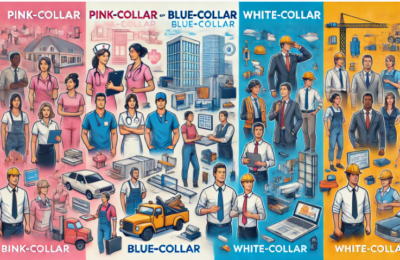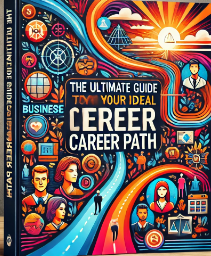Picture this: you’ve just landed an interview for your dream job. Your palms are sweaty, your heart’s racing, and you’re wondering if you’ve got what it takes to impress the hiring manager. Sound familiar? Don’t worry, we’ve all been there! Job interviews can be nerve-wracking, but with the right preparation and mindset, you can walk in with confidence and leave a lasting impression. In this ultimate guide, we’ll share proven tips and strategies to help you ace your next job interview and stand out from the crowd. So, let’s dive in and get you ready to rock your interview!
What You’ll Learn
In this comprehensive guide, you’ll discover:
- How to research the company and align your skills with their goals
- The importance of knowing your resume inside and out
- Strategies for practicing common interview questions using the STAR method
- Tips for making a strong first impression on the day of the interview
- How to answer questions with confidence and showcase your achievements
- The value of asking thoughtful questions and showing enthusiasm
- How to follow up after the interview and learn from the experience
By the end of this article, you’ll be equipped with the knowledge and tools you need to approach your next job interview with confidence. Whether you’re a recent graduate or a seasoned professional, these proven strategies will help you stand out from the competition and increase your chances of landing your dream job.
Preparing for the Interview
Research the Company
Before you even step foot in the interview room, it’s crucial to do your homework. And no, we don’t mean stalking your interviewer on social media (although a little LinkedIn research never hurt anyone!). We’re talking about diving deep into the company’s mission, values, and culture. By understanding what makes the organization tick, you’ll be better equipped to explain how your skills and experience align with their goals.
Start by scouring the company’s website, paying close attention to their “About Us” page and any recent news or press releases. This will give you a solid foundation of knowledge to build upon. But don’t stop there! Take your research a step further by looking into the company’s competitors and industry trends. This will show your interviewer that you’re not just interested in the job, but you’re also invested in the bigger picture.
Know Your Resume Inside and Out
Your resume is your ticket to the interview, but it’s not just a piece of paper. It’s a reflection of your professional journey, and you better believe your interviewer is going to ask you about it! So, before you walk into the interview, make sure you know your resume like the back of your hand.
Take some time to review your work experience and key achievements. Be prepared to discuss how your skills and expertise make you the perfect fit for the role. And don’t be afraid to highlight any particularly impressive accomplishments – this is your time to shine!
Practice Common Interview Questions
You’ve done your research, you know your resume, now it’s time to tackle those pesky interview questions. While every interview is different, there are some common questions you can pretty much count on being asked. Classics like “Tell me about yourself” and “Why do you want to work here?” are staples in the interviewing world.
To prepare, jot down a list of potential questions and brainstorm your responses. Use the STAR method (Situation, Task, Action, Result) to structure your answers, especially for behavioral questions. The STAR method is a straightforward way to organize your thoughts and provide concrete examples of your skills in action. Here’s how it works:
- Situation: Describe the specific situation or context in which the event took place.
- Task: Explain the task or goal you were working towards.
- Action: Detail the actions you took to address the situation or complete the task.
- Result: Share the outcome of your actions and the lessons you learned from the experience.
By using the STAR method, you’ll be able to provide clear, concise, and relevant answers that showcase your abilities and leave a lasting impression on your interviewer.
And don’t forget to practice, practice, practice! Grab a friend, family member, or even your trusty mirror and run through your responses. The more you practice, the more confident you’ll feel when the real deal comes around.
Top 12 Questions Employers Ask During Job Interviews
- Tell me about yourself.
- Why do you want to work for our company?
- What are your greatest strengths?
- What do you consider to be your weaknesses?
- Why should we hire you?
- Where do you see yourself in five years?
- Can you tell me about a time when you faced a challenging situation at work and how you handled it?
- How do you handle stress and pressure?
- What are your salary expectations?
- Do you have any questions for me?
- Describe your ideal work environment.
- What motivates you?
By familiarizing yourself with these common questions and preparing thoughtful responses, you’ll be better equipped to handle whatever your interviewer throws your way. Remember, practice makes perfect, so take the time to rehearse your answers and get comfortable articulating your skills and experiences.
Arrive Early and Prepared
The Day of the Interview
The big day has arrived, and it’s time to put your best foot forward! One of the simplest yet most effective ways to start your interview off on the right foot is to arrive early. Plan your route in advance and aim to arrive at the interview location 10-15 minutes before your scheduled time. This will give you a few moments to compose yourself, review your notes, and get in the right headspace.
When you arrive, be sure to bring along a few essentials. Print out a couple of copies of your resume, just in case your interviewer needs one. It’s also a good idea to bring a list of references and a notepad and pen to jot down any important information during the interview. By showing up prepared, you’ll demonstrate your organization skills and enthusiasm for the opportunity.
Make a Strong First Impression
You never get a second chance at a first impression, so it’s crucial to start strong! As soon as you walk through the door, put your best foot forward. Greet everyone you meet with a warm smile and a confident handshake. Remember, your interview starts the moment you enter the building, so be polite and professional with everyone you encounter.
Your body language plays a big role in how you’re perceived, so be mindful of your posture and eye contact. Stand tall, with your shoulders back and your head held high. When you meet your interviewer, make direct eye contact and offer a firm handshake. These small gestures can go a long way in showing your confidence and enthusiasm for the role.
During the Interview
Answering Questions with Confidence
Now that you’re face-to-face with your interviewer, it’s time to let your preparation shine. As you answer questions, remember to stay focused and concise. Listen carefully to each question and take a moment to gather your thoughts before responding. If you need clarification, don’t be afraid to ask – it’s better to get it right than to ramble on in the wrong direction.
When crafting your responses, be sure to provide specific examples that demonstrate your skills and experience. Use the STAR method to structure your answers, and don’t be afraid to showcase your achievements. Remember, this is your time to sell yourself and show the interviewer why you’re the best candidate for the job.
Showcase Your Skills and Achievements
Your interview is the perfect opportunity to highlight your skills and achievements. As you discuss your work experience, be sure to emphasize any transferable skills that are relevant to the role. For example, if you’re applying for a marketing position, you might highlight your experience with social media campaigns or content creation.
When talking about your achievements, don’t be afraid to get specific. Share concrete examples of how you’ve made a positive impact in your previous roles. Did you lead a project that increased sales by 20%? Did you streamline a process that saved your company time and money? These are the types of accomplishments that will make you stand out from other candidates.
Asking Questions and Showing Enthusiasm
An interview is a two-way street, and it’s just as important for you to ask questions as it is to answer them. Asking thoughtful, relevant questions shows that you’re genuinely interested in the role and the company. It also gives you an opportunity to learn more about the position and determine if it’s the right fit for you.
Before the interview, prepare a list of questions that demonstrate your knowledge of the company and your enthusiasm for the role. Ask about the company’s culture, the team you’d be working with, and the opportunities for growth and advancement. Avoid asking about salary or benefits in the initial interview – save those questions for later in the process.
Remember, the way you ask questions is just as important as the questions themselves. Show enthusiasm and curiosity in your tone and body language. Lean in slightly, make eye contact, and nod along as your interviewer responds. By engaging in meaningful conversation, you’ll leave a lasting impression and show that you’re truly invested in the opportunity.
After the Interview
Follow Up with a Thank-You Note
Congratulations, you’ve made it through the interview! But your work isn’t done just yet. One of the most important things you can do after an interview is to follow up with a thank-you note. This simple gesture shows your appreciation for the interviewer’s time and reinforces your interest in the position.
Aim to send your thank-you note within 24 hours of the interview. Email is generally the best way to go, but a handwritten note can add a personal touch if you have the time. In your note, express your gratitude for the opportunity and reiterate your enthusiasm for the role. You can also use this as a chance to highlight any key points from the interview or provide additional information that you forgot to mention.
Reflect and Learn from the Experience
Whether you land the job or not, every interview is a learning experience. Take some time to reflect on how the interview went and identify areas for improvement. Did you stumble over any questions? Were there any skills or experiences you forgot to mention? Use this feedback to inform your preparation for future interviews.
If you don’t get the job, don’t be discouraged. Use it as an opportunity to grow and refine your interviewing skills. And if you do land the gig, celebrate your success and get ready to tackle your new role with confidence!
Key Takeaways
- Research the company thoroughly before the interview
- Know your resume inside and out and be prepared to discuss your skills and experiences
- Practice common interview questions using the STAR method
- Arrive early and prepared with copies of your resume and a notepad
- Make a strong first impression with confident body language and a warm greeting
- Answer questions concisely and provide specific examples of your achievements
- Ask thoughtful questions and show enthusiasm for the role and company
- Follow up with a thank-you note within 24 hours of the interview
- Reflect on the experience and use it to improve your interviewing skills
FAQs
Q: What should I wear to a job interview?
A: The dress code for a job interview can vary depending on the company and industry. As a general rule, it’s better to err on the side of being overdressed rather than underdressed. For most corporate jobs, a suit or professional dress is appropriate. If you’re unsure, do some research on the company’s culture and dress accordingly.
Q: How do I answer the dreaded “What’s your greatest weakness?” question?
A: When answering this question, it’s important to be honest but strategic. Choose a weakness that isn’t a core skill for the job and focus on how you’re actively working to improve it. For example, you might say something like, “I sometimes struggle with public speaking, but I’ve been taking a course to build my confidence and improve my presentation skills.”
Q: What if I don’t know the answer to a question?
A: It’s okay to admit if you don’t know the answer to a question. In fact, it’s better to be honest than to try to fake your way through it. If you’re unsure, say something like, “That’s a great question, and to be honest, I don’t have a specific answer for you right now. But I’m always eager to learn and would be excited to dive into that topic if given the opportunity.”
Q: How long should I wait before following up after an interview?
A: It’s generally best to send a thank-you note within 24 hours of the interview. If you haven’t heard back within a week or so, it’s appropriate to follow up with a polite email inquiring about the status of your application. However, avoid being too pushy or aggressive in your follow-up.
Conclusion
Phew, that was a lot of information to take in! But don’t worry – with these proven tips and strategies, you’re well on your way to acing your next job interview. Remember, the key to success is preparation. By doing your research, practicing your responses, and showcasing your skills and achievements, you’ll be able to walk into any interview with confidence and leave a lasting impression on potential employers.
So what are you waiting for? Get out there and start preparing for your dream job! And don’t forget – even if you don’t land the gig on the first try, every interview is an opportunity to learn and grow. With each experience, you’ll refine your skills and get one step closer to finding the perfect fit.
Now, go forth and conquer the job market! We believe in you.











